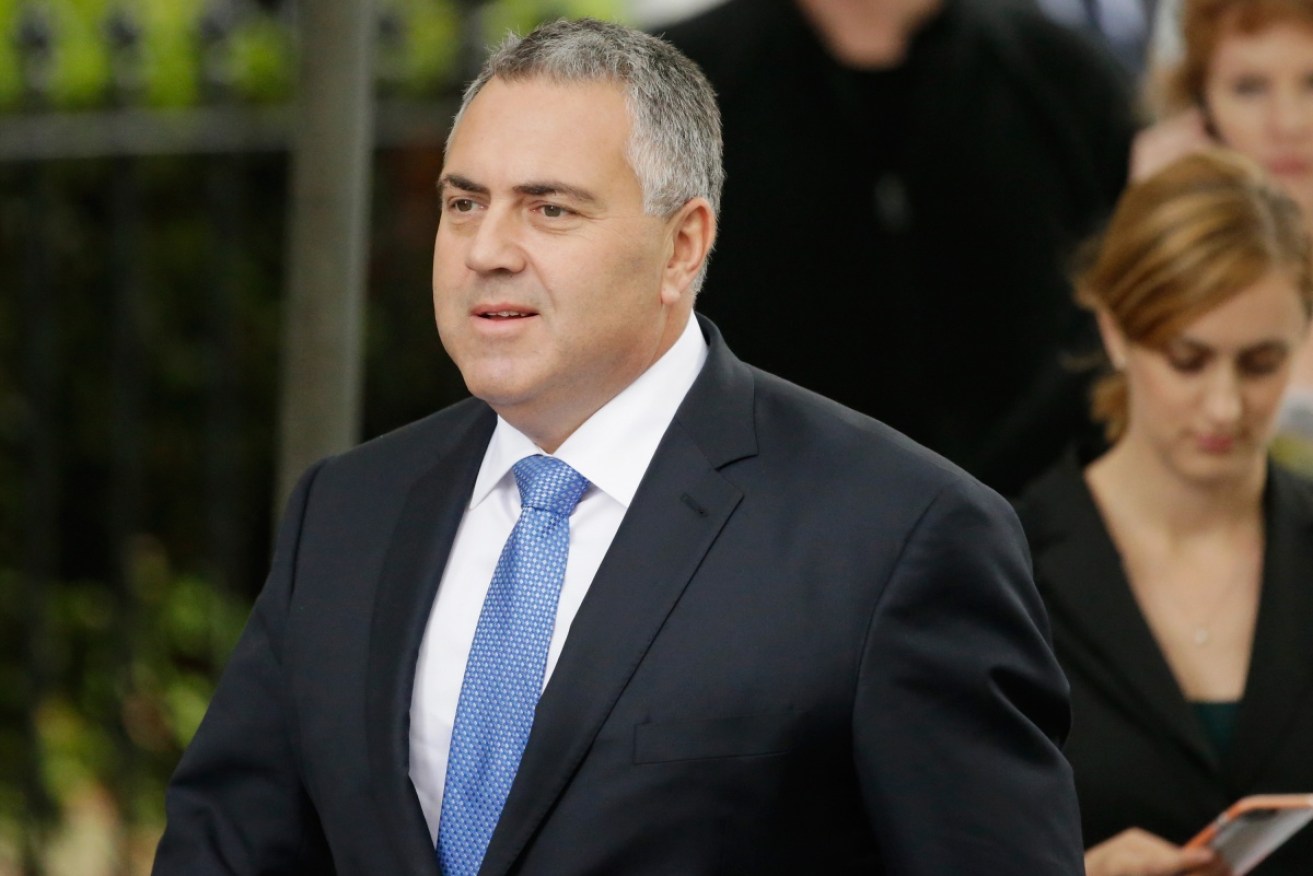Budget 2015 could send households into meltdown


As federal budget day approaches, the Abbott government is stuck with a policy dilemma, largely of its own making.
On the one hand, it has established a long-running, but hyperbolic, ‘debt and deficit’ story – you know, the one it used to pillory the Gillard government so effectively in the lead-up to the 2013 election.
That narrative has become so entrenched that Treasurer Joe Hockey would seem to have no choice but to continue cutting federal spending – hence his talk of a “mildly contractionary” budget.
• Paul Bongiorno: budget bogeyman still stalking Abbott, Hockey
• Does iron ore plummet justify another savage budget?
• Hockey, Costello locked in war of words
On the other hand, Australia is facing an unusual set of economic circumstances that no one accurately predicted. Specifically, ultra-loose monetary policy in the US has persisted longer than expected and has had the effect pushing borrowing costs down further than expected.
That means there is a wonderful opportunity to borrow oodles of cheap money, which would ideally be used to fix up the nation’s creaking infrastructure.
Imagine a cafe, running at a small loss because its coffee machine was slow and unreliable. If a bank manager said, “I’ll lend you money for five years at 2.4 per cent”, the cafe could get a new machine, boost productivity and increase profits.
However, if the cafe owner waited six months and then found that rates were, say, four per cent, they might not order that new machine.
Now’s the time

Joe Hockey pointing out how he will balance the budget. Photo: AAP
This is the situation Treasurer Hockey faces. A global flood of cheap money looking for a safe haven has pushed 10-year government bond rates down to just over 2.3 per cent. However, with many pundits expecting the US to increase interest rates for the first time in six years this northern summer, that price is set to rise.
So do we get the new coffee machine or not?
Economies don’t function as simply as small businesses, of course, and there are some other major factors that should influence the Treasurer’s choices in the May budget.
The first is growth. Our economy is growing at below trend, meaning it cannot generate enough jobs to stop unemployment rising. And workers who do have jobs are experiencing very low rates of wage growth.

Economic activity is easy to say, hard to create.
We are not yet in the danger zone, but if those two trends continue there is the risk of falling into recession. To avert that risk it would be better, at this point in time, to find ways to stimulate the demand side of the economy, as the Rudd government did with some abandon in 2008 and 2009.
Price inflation is currently at the low end of the RBA’s two to three per cent target, wage inflation is low, and growth is below-trend. Stimulating the economy at this point could turn all of those indicators around – and it would be far better to be nervous about inflation right now than deflation.
Stimulating growth with money borrowed at record low rates would at least buy Australia time while it moves through the painful transition away from the previously booming resources exports.
But wait, there’s more
Looking down the track, Australia faces another risk that is potentially more dangerous than sub-par growth – the deflation of a private debt bubble.
As former RBA and Goldman Sachs economist Christopher Joye recently pointed out:
“The household debt-to-disposable income ratio hit a new peak of 153.8 per cent in March (the previous ceiling was 152.7 per cent in September 2006). Australia’s household debt-to-income ratio is now 19 per cent above the 129 per cent level that raised eyebrows in 2003.”
While many households have reduced their debts since the GFC, the combination of unemployment, under-employment and sluggish wage growth means we nonetheless have a record debt-to-income ratio.
And doesn’t the RBA know it. While many observers thought it would cut rates last week, its hand was stayed partly by the boom in mortgage lending, particularly in Sydney and Melbourne.
This is where a debt-funded infrastructure spree by the government could help. Breathing some inflationary pressure into the economy at this moment in time – when it’s incredibly cheap to do so – would allow the RBA to give up its record low interest rates and perhaps even start raising rates in the near-term.
While that would be interpreted as just more ‘pain’ by householders, it would put the brakes on credit growth and stop our world-leading stock of household debt becoming larger.
And it would return the RBA to a position in which monetary policy could be effective again – that is, with rates substantially higher than the current emergency settings.
There’s a precedent
If this all sounds too far fetched for debt-and-deficit avenger Hockey, it’s worth recalling that he’s done it before.
In December 2013, his first budget document – the mid-year economic and fiscal outlook (MYEFO) – shocked everyone by blowing Labor’s projected deficit out by around $20 billion. About half of that was a one-off recapitalisation of the RBA, which really wasn’t needed.
What few appreciated at the time is that Mr Hockey was just trying to borrow a good chunk of money while rates were low – 3.4 per cent on 10-year bonds.
Now that the government’s borrowing rate is even lower (2.34 per cent at the time of writing), Mr Hockey would be wise to pile on the debt, with a view to cutting borrowing more in subsequent years.
That’s the dilemma. Mr Hockey knows what he needs to do, but second only to Prime Minister Tony Abbott he’s the storyteller who convinced the nation it can’t be done.
It can. It should. And Cafe Australia would stand a better chance of returning to profit in the years ahead.









